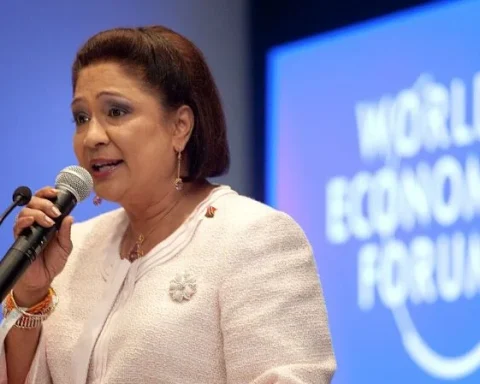Although the female quota in senior management positions evolves in business organizations, the presence of Afro women is going slowly and is a pending task.
This is shown by the initial studies that explore how is the participation of this type of population in the boards of directors, at a time when greater leadership seems to be making its way, thanks to the meaning and role that Francia Márquez begins to play as the first vice president country black.
(This week a project will be filed to create the Ministry of Equality).
Statistics say that this year, of 165 positions held by women on the boards of directors of companies listed on the Colombian Stock Exchange, only three belong to Afro women (1.8%).
And the number is much lower if the comparison is made with the total population of members of boards of directors because it is concluded that Afro-descendant women occupy only 0.4% on the boards of directors of securities issuers.
The numbers are incipient despite the fact that Colombia is considered the country in South America that is making the fastest progress on issues related to gender equality at the business level, with an average annual growth of 1.5 percentage points compared to the participation of women on the boards of directors of securities issuers. This year female representation reached a historic 21.2%.
Based on these results, Cesa’s Center for Corporate Governance Studies, which within its lines of action works for gender equality in leadership positions in the country’s business sector, this year has taken on the task of working in association with foundations that have been serving the Afro-descendant population, such as Manos Visibles and the WWB Foundation, in order to generate value for women from the Afro-descendant community in the management sphere of companies.
(Francia Márquez, first Afro ‘vice’ and first Minister of Equality).
María Andrea Trujillo and Alexander Guzmán, co-directors of the Center for Corporate Governance Studies, agree that in the country the issue of discrimination becomes more complex when the variables that condition opportunities intersect, not only with regard to gender, but also also to race. “This scenario has motivated us at Cesa to make an effort to make Afro-leaders visible for the business sector,” says Guzmán.
And she adds that “we seek to generate initiatives of value for the community, promote research and be able to give a national diagnosis on the female leadership of Afro-descendant women. We are committed to the institutional activism that must be done, making the leaders of underrepresented communities visible and creating spaces for them.”
For Cesa, it is worrying that in countries like the United States there is significant academic support for the Afro community, which has led Colombian women from the community to leave the country to train.
“The opportunities in Colombia are limited. Some of the women’s resumes we have begun to meet have master’s degrees from leading international academic institutions. They are very well-prepared people, but they do not have enough support in the country and they are not visible,” says María Andrea Trujillo.
(This is the first state policy for gender equality).
Another of the projects that Cesa wants to achieve, together with the Manos Visibles Foundation, is the creation of a Bank of Resumes with profiles of the Afro-descendant population prepared to hold positions in middle management and senior management, as well as positions on the board of directors.
In addition, Cesa’s scholarship program, with an Afro focus, which began this year, seeks to support efforts such as those that Icesi has been doing and achieve representativeness of the country’s diversity. “If in Colombia there are some 5,000,000 people from the Afro community, where are they, at least in the business sector they are hardly seen,” they say.
Daniela Maturana, former vice minister of sports; Edna Liliana Valencia, a social activist, writer and news reporter, and Helena Valencia Moreno, a lawyer, co-founder and coordinator of the Innovation Girls program, are part of the Afro women who come to reinforce the Leadership Community of Women in Boards of Directors of Cesawhich today has more than 340 women prepared to occupy leadership positions and boards of directors in Colombia.
“It is everyone’s business to promote the talent of Afro-descendant women and open opportunities for women in general,” said María Andrea Trujillo.
BRIEFCASE
















